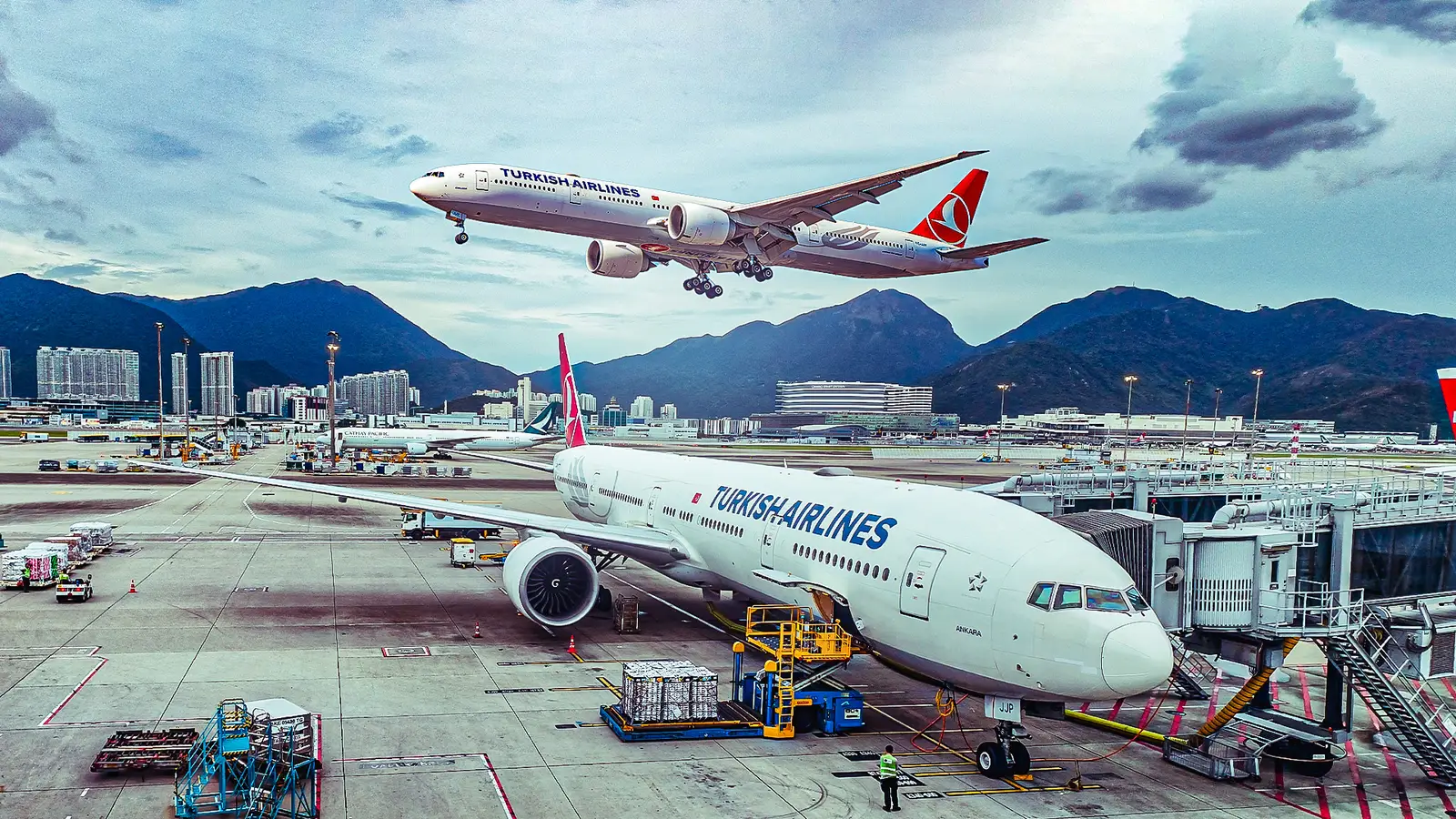Copyright Simple Flying

Turkish Airlines has officially secured a five-year $408.5 million loan that is being provided by the Bank of China, a multinational financial services corporation. The bank's Macau branch is currently listed as the official lender of record. The airline says that it will be using these funds to support fleet expansion, growth initiatives, and infrastructure projects at its principal hub at Istanbul Airport (IST). This deal adds much-needed fresh liquidity for the airline as Turkish Airlines seeks to execute its 2033 strategy in order to roughly double the size of its fleet to around 800 aircraft. This comes alongside large commitments announced over the past two years, which will see the carrier expand its fleet with jets from Boeing and Airbus. This financing, which was first reported by the Anadolu Agency, signals continued diversification of funding sources towards Chinese banks as the airline continues to scale capacity and seeks to upgrade assets across the board in order to sustain its long-haul and regional network growth. What Are The Key Developments In This Story? The Anadolu Agency disclosed a five-year facility of around 2.9 billion yuan (around $408.5 million) for Turkish Airlines, a financial maneuver arranged by the Bank of China with the bank's Macau branch serving as the official lender. This financing will allow the airline to upgrade its fleet, including more fuel-efficient jets. The airline is also going to add more facilities to its network while also building out its hub at Istanbul Airport. This funding lands amid an aggressive fleet plan to reach around 800 aircraft by 2033, with the airline recently placing orders for up to 75 Boeing 787s, alongside an overall intent for 150 additional Boeing 737 MAX jets. A separate Airbus package encompassing Airbus A321neos, Airbus A350 models, and Airbus A350F freighters was also recently announced. Together, these moves will tighten the airline's financing and delivery picture, helping ensure execution capacity for both widebody and single-aisle growth while broadening the airline's overall banking relationships beyond those of its traditional European lenders. What Are The Financial Implications Of This For Turkish Airlines? This loan ultimately deepens access to Chinese-linked capital through a top-tier bank, helping diversify the airline's capital stack and reducing dependence on traditional European lenders. There is a five-year bridge created by this new funding, which allows the airline to quickly acquire more aircraft and improve infrastructure at its principal hub. This allows the airline to smooth capital expenses while preserving the flexibility needed to access more capital from core lenders if necessary. The timing of this news is very beneficial for the airline, as there are large orders for both Boeing and Airbus aircraft waiting in the wings, with incremental liquidity lowering overall execution risk and supporting pre-delivery payments without the added stress of working capital. Key considerations include currency and interest-rate exposure tied to foreign exchange markets. Therefore, this new capital facility allows the airline to hedge credit flows between different lenders. Across the board, the package modestly lowers overall funding costs through competitive pricing, and it signals that the airline has the confidence of major financial institutions. What Impacts Could This Have On Passengers? For travelers, there will only be downstream effects from this financing. The airline will be able to invest in capacity expansion and product modernization, both of which will significantly improve the nature of the passenger experience. The investment in a larger fleet will support denser schedules on trunk routes and unlock thinner city pairs where right-sized widebody aircraft and high-density Airbus A321neos can sustain profitable nonstop service. This will allow the airline to expand connection options through Istanbul. The clearest beneficiaries of this new round of funding will be passengers in premium cabins. The airline will be able to rapidly refresh its cabins and improve passenger comfort, especially in business class. Lounges will also likely be upgraded. What passengers likely will not see are short-term fare shocks. The introduction of this new capital will likely not result in the airline changing the way it charges passengers, at least in the short term.



